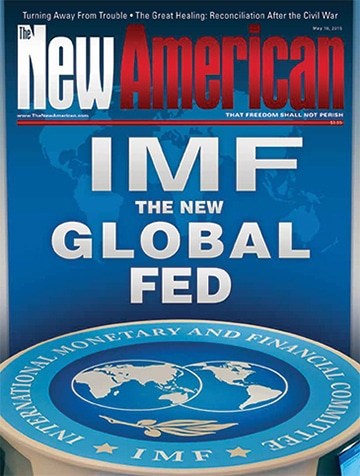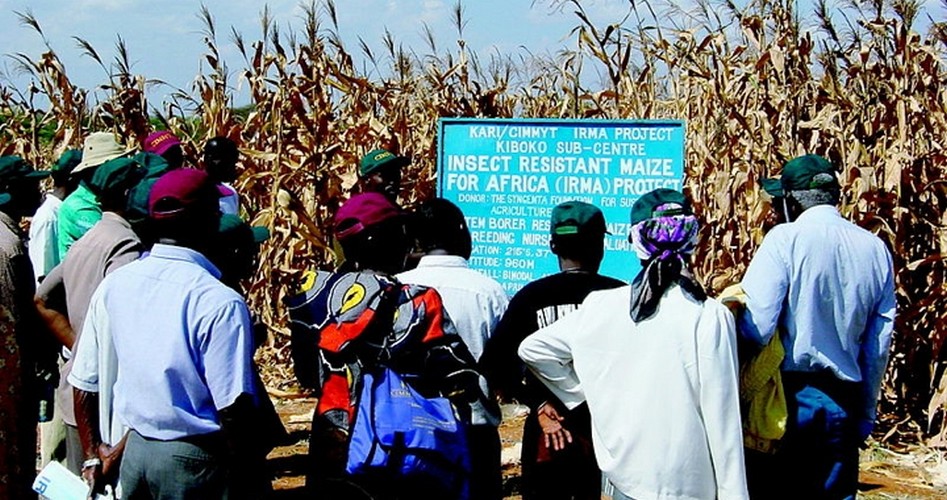Inside Track
National and International Efforts Continue Against GMOs
On Thursday, Vermont Governor Peter Shumlin signed legislation making his state the first to require labeling of genetically modified organisms, or GMOs.
“We are pleased at the amount of public input we received during the rulemaking process — from industry and consumers — and are glad that, with the formal adoption of this rule, we are giving ample time for food manufacturers and retailers to prepare for the law to take effect in just over fourteen months,” said Vermont Attorney General Bill Sorrell in a statement.
Sixty-four countries across the world have adopted GMO-labeling rules, while 26 others have issued full or partial bans on GMO use, including France, India, and Mexico.
To create GMOs, the DNA from one or more species is added to the DNA of a particular crop so that it gains certain desirable traits, such as the ability to tolerate pesticides. Monsanto is the largest producer of genetically modified seeds in the world and is the leading producer of the herbicide glyphosate, which is marketed under the Roundup brand.
A series of studies have connected the use of GMOs to adverse health effects, including cancer.
For example, a 2012 study conducted by Gilles-Eric Seralini of the University of Caen in France raised concerns about the use of GMOs by examining the effects of consuming a Monsanto seed variety known as NK603, made tolerant to the company’s Roundup herbicide. This GMO corn was fed to rats, which were later observed to have developed tumors and experienced kidney and liver damage.
Natural Society reported at the time, “As a result of the mass tumors, liver and kidney damage, it was concluded that around 50 percent of the males and 70 percent of the females died prematurely as a result of eating only Roundup tolerant seed or drinking water with Roundup [at] approved levels set by the United States government.”
Natural News observed, “This is the same corn that’s in your corn-based breakfast cereal, corn tortillas and corn snack chips.”
Furthermore, the rats that drank trace amounts of Roundup at levels that are legally permitted in the water supply had a 200-percent to 300-percent increase in large tumors over rats drinking uncontaminated water.
Groups across the country have taken up GMO-labeling initiatives. Perhaps the most well-known effort was California’s Proposition 37, which was defeated last November after major companies spent millions to defeat it, with Monsanto putting over $45 million into the effort.
Proposition 37 was significant as it was the first opportunity for voters, rather than lawmakers, to decide whether labels such as “This product contains GMOs” will appear on food packages.
Opponents of Proposition 37 were accused of misleading the public in their ads against the measure by improperly invoking the Food and Drug Administration. The quote in question stated, “The U.S. Food and Drug Administration says a labeling policy like Prop 37 would be ‘inherently misleading.’”
According to the California Right to Know campaign, the FDA never made such an observation.
But even as the proposition was defeated, 46.9 percent of Californians voted in support of the measure, proving that the American people are in fact concerned about the presence of GMOs in their food.
In fact, a December Associated Press-GfK poll showed that 66 percent of Americans support requirements for food manufacturers to place labels on GMO foods.
Vermont's actions coincide with a recent letter written by 10 European non-profit groups to China that ask the Chinese people to take action to help clean up the food supply that has been contaminated with Round Up and glyphosate chemicals. China is the world’s largest producer of glyphosate and the largest importer of Round-up Ready GMO soy.
The letter cites findings by the Argentinian Federation of Health professionals that label glyphosate as a carcinogen. “Glyphosate not only causes cancer. It is also associated with increased spontaneous abortions, birth defects, skin diseases, and respiratory and neurological disease,” reported the Argentinian Federation of Health professionals.
The letter also references findings by the World Health Organization that call glyphosate a “probable human carcinogen.” The letter states that the WHO's complete report, though not yet published, “will contain the full evidence underpinning the conclusion.”
The letter asks Chinese officials to consider three things:
First, will you please commission appropriate scientific institutions in China to carry out independent long-term carcinogenicity, teratogenicity, endocrine developmental disruption, and multiple-generation reproduction toxicity tests on glyphosate alone, and on Roundup formulations? These studies should be carried out by institutions with no commercial or academic interest links with the glyphosate and/or related products industries, and with no connections to the earlier safety evaluation of glyphosate and/or related products.
Second, before such studies are commissioned, we ask you as an essential precautionary measure immediately to suspend production/sales and exports of glyphosate, to suspend imports of Roundup formulations, and to suspend imports of all agriculture products (such as RR varieties) containing any glyphosate residues.
Finally, given the past frauds by IBT and Craven Labs in carrying out industry tests on pesticides, including glyphosate, we urge you to challenge Monsanto to place certain key reports (6) immediately into the public domain. If the corporation will not cooperate by releasing these documents without deletions or alterations, we will assume that there has been a scientific malpractice and that the WHO findings of a glyphosate/cancer link are well founded.
The letter — signed by members of organizations in London, Scotland, Switzerland, Bulgaria, and Wales — concludes by stating that a number of scientists have noted the dangers of GMOs, but have been confronted by political and commercial obstacles. The writers are hopeful that China will take a lead on the world’s stage to ensure good health for future generations.


